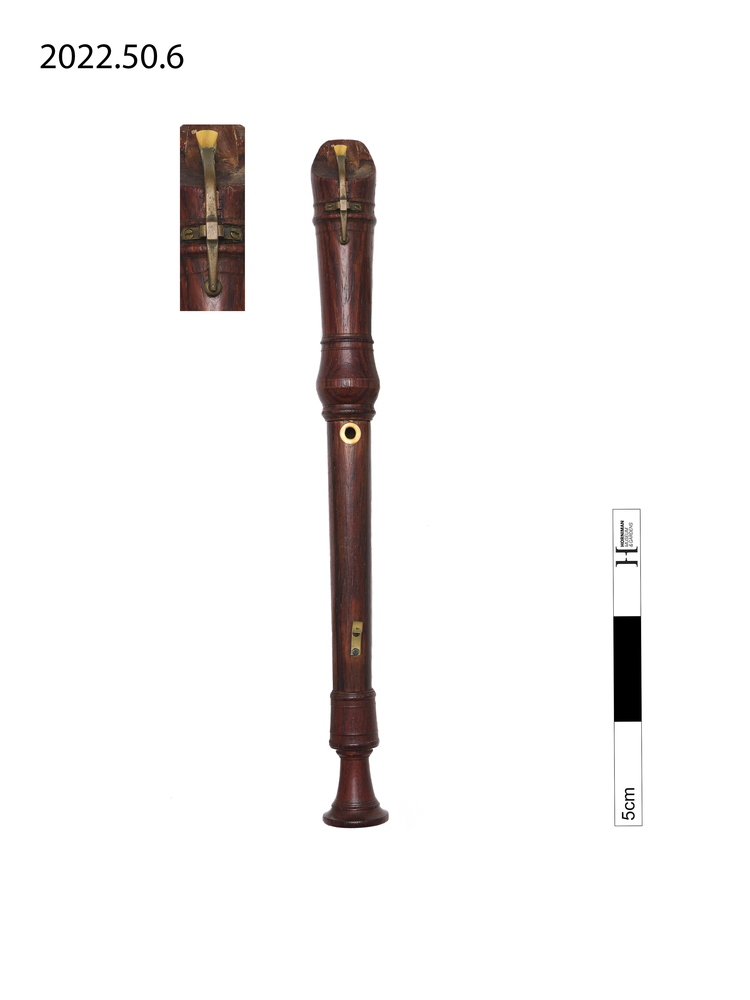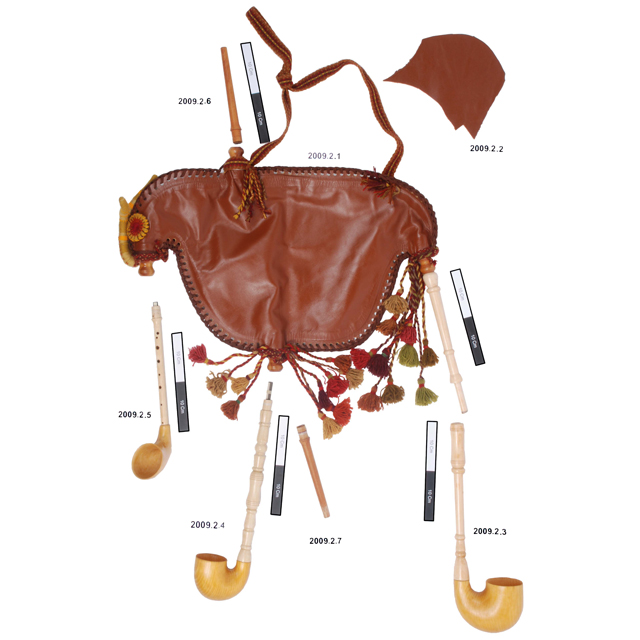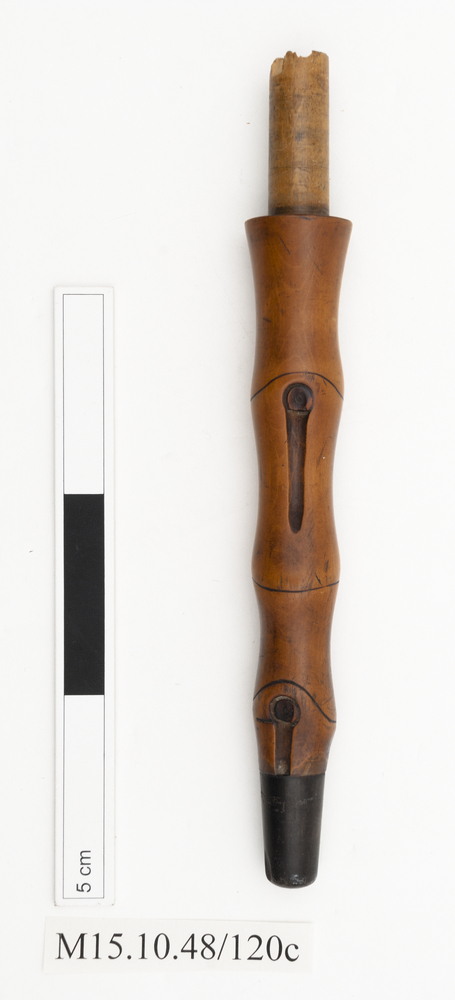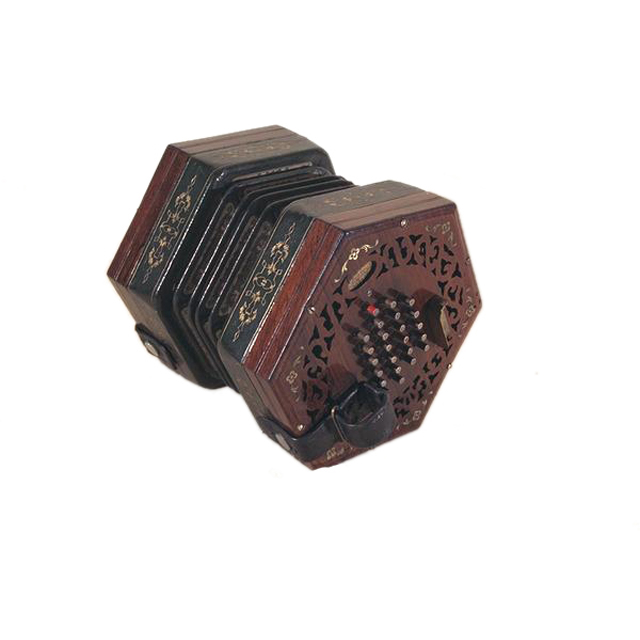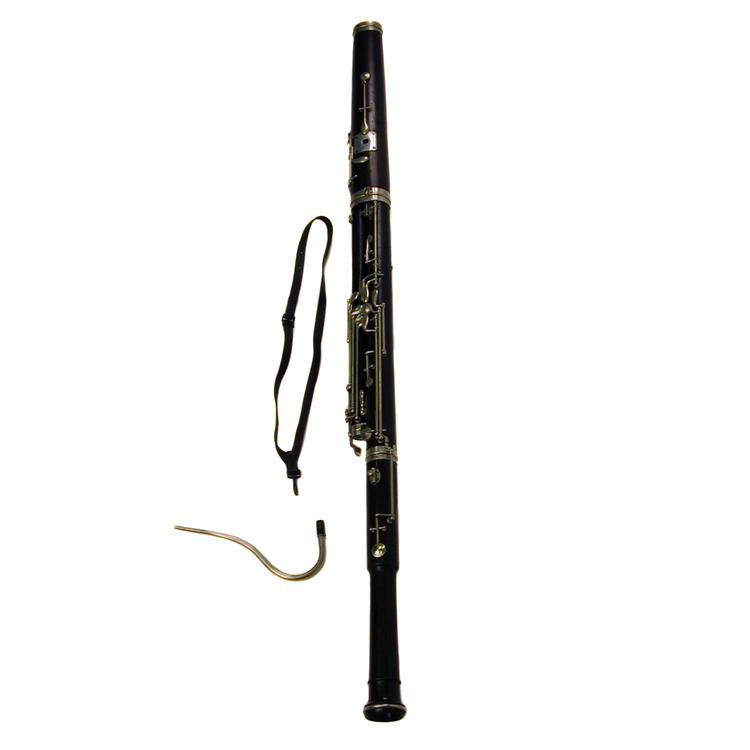
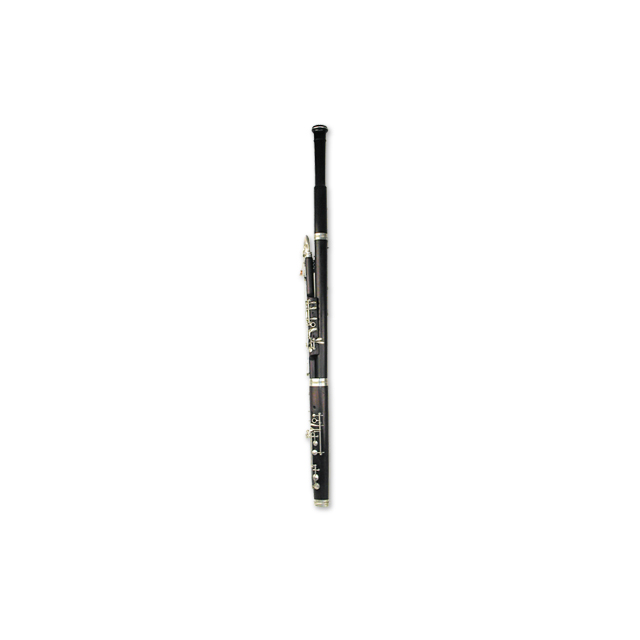
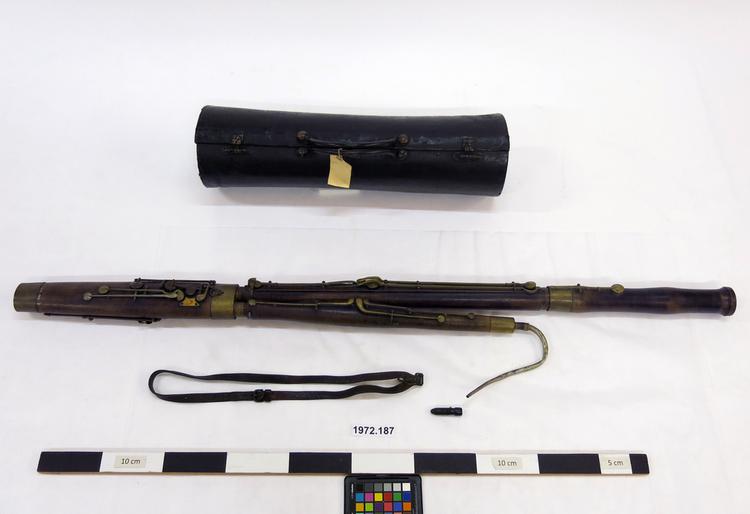
French-system twenty-three-keyed bassoon. Index card reads: Phillips sale 13 July 1972. Twenty-three German silver keys, (French system). Rosewood; German silver mounts and linings to joints. In cylindrical fitted leather case, with sling and stopper for crook-key. The R thumb-hole has been faced with a silver-plated plate, and the touch for the F key for R thumb removed together with the axle. Key mechanism needs much adjustment. A well-used instrument, but in good condition, subject to the modifications mentioned.
Parallel developments in Germany and France during the 19th century resulted in two different bassoon designs. The German (or 'Heckel') system is commonly considered to have a more even tone, while the French (or 'Buffet') bassoon is credited with greater expressive freedom, even though the sound is more nasal and less homogeneous. The German system gained in popularity throughout the 20th century, and the French bassoon is now only commonly used in France. Nevertheless, its particular sound quality is very important in the history of the symphony orchestra. The opening of Stravinsky's Rite of Spring is one example of a bassoon solo written for the distinctive nasal tone of the French instrument.



